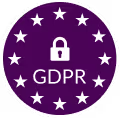Executive coaching programs and courses are important to get right. After all, the people at the highest level of a company need the best possible level of skills to handle the complex job of running an organization. At the same time, there might be no greater challenge to a coach than working with a busy boss. And from HR’s point of view, how do you know that you are hiring the best?
Executive Coaching Programs and Courses Are Unique
The goal of an executive coach is to improve the performance of a company’s most critical people. Their job is to address whatever professional hurdles the executive is facing, optimize their current talents, or get them ready for new responsibilities. Whatever the reason behind an executive coaching engagement, it always involves enabling a top leader to expand their already impressive skills.
Added to this challenge is the nature of an executive and their tasks. They are often under pressure, have high expectations of those they work with, and want to see fast results. Many of them are worried about their future, as approximately 55% of executives fail to perform within the first year and a half at their position. All of these factors add up to a need for any executive coaching program to be right on the mark, every time.
HR’s Stake in Executive Coaching Courses
Executive coaching programs cost a company in two ways. First, there is the price of the engagement, which might be relatively high considering the abilities that an effective executive coach must have. Second is the cost of taking the executive away from their duties so that they can meet with the coach.
It’s up to HR/L&D to make the most of this investment. For the sake of the organization, a leader who is functioning at the maximum level will boost productivity and competitiveness. In terms of HR’s “seat at the table”, a boss who is impressed with an executive coaching program will credit those who arranged it and let them play a greater role in organizational development.
Executive Coaching Programs – Form and Function
With these concepts in mind, HR should pay close attention to two specific qualities of an executive coaching service.
Methodology
How a subject is “taught” can be just as important as what is being taught. In a coaching program, there is no formal teaching, which is one of the crucial signs of an effective program. As part of a “clean coaching” process, the coach arrives at the engagement with no preconceived notions about how to run the client’s business. Instead, they guide the executive towards finding their own means of improvement.
In addition, as exemplified by Growthspace’s 1-on-1 coaching programs, other indicators of a quality executive coaching course include the following:
- Matching – Each executive will have certain skills that they want to develop. Those needs must be matched with an executive coach who includes the relevant skills in their offering.
- Goal-setting – For the sake of understanding the before and after skill level of the client, the coach should be able to propose some kind of evaluation method to assess the progress of the executive.
- Schedule – Considering the workload that many executives must handle, a good coach will run an effective engagement in minimal time. One method to achieve this is to use “growth sprints”, for instance, five one-hour sessions over 8-10 weeks. The short time frame promotes focus so that the client doesn’t become bored with the sessions; a high attendance rate; and quick results.
- Assignments – To put a plan into action, an executive coach should give assignments that are limited in duration and encourage the client to build the skills that are discussed during sessions.
- Feedback – Enabling the coach and the client to critique the engagement at various stages is vital in several ways. Any coaching program depends on a good relationship between the two parties. The executive coach should start a course with an initial meeting so that both sides can determine if they have “chemistry”. Immediately afterwards, each party can state that they would prefer to work with someone else. Additionally, in order to ensure that the engagement is headed in the right direction, the executive should periodically comment on its pros and cons, for example, at the mid-point of the program. Finally, to conclude the goal-setting aspect of an executive coaching program, feedback at the end of the course is necessary.
Content
What’s true for employees in general is especially relevant for executives – L&D personalization is critical. By the time somebody has reached the top level of a company, they have developed an extremely strong leadership skill set, as well as many other abilities. The areas that they need to improve will most likely be highly specialized.
In light of this, the executive coach that you choose must have a wide range of specialties. Let’s take a look at three basic categories of Growthspace’s executive coaching engagements and a small selection of the skill elements that they cover:
Leadership Development
- Leading in technical roles
- Creating a personal brand
- Mindfulness in team situations
- Paths to influence
- Dealing with ambiguity
- Building accountability and trust
- Flexibility & risk-taking
Communications
- Clarity in communications
- Conflict management
- Confidence and assertiveness
- Building rapport
- Motivating team members
- The art of feedback
Management
- Running 1 X 1 and team meetings
- Feedback, assessment, and evaluation
- Hiring talent
- Delegation
- Resource & task management
- Active listening
Talent Development Platforms Will Help
The long list of qualities for a top-notch executive coaching course might be difficult to source on your own. That’s why L&D search platforms like Growthspace are essential for any organization which must run multiple programs or wants maximum choice. Talent development platforms give you access to a global network of coaches (and other L&D experts), and that increases your chances of finding the ones with the best method, content, and availability. In addition, the leading platforms help with administration, evaluation, and communication, so that HR can organize an entire L&D program from a single interface.
Ready to turn insights into impact?


















